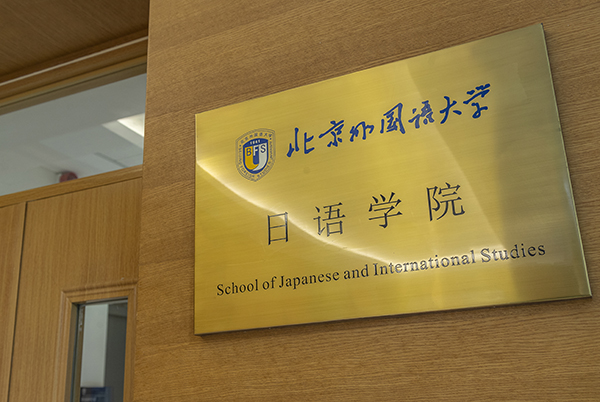- Research
- Research Centers
- Journals
- Admission
- Introduction
- Programs
- Application
- Alumni & Giving
- Alumni Club
- Giving

Overview
The School of Japanese and International Studies (SJIS) traces its origins to the undergraduate Japanese program established at China Foreign Affairs University in 1956. This program was integrated into the School of Asian and African Studies at Beijing Foreign Studies University (BFSU) in 1962. Two decades later, in 1981, the Department of Japanese was established as an independent unit and was officially renamed the School of Japanese and International Studies in November 2018.
The Beijing Center for Japanese Studies (BCJS) was founded in 1979 as the National Japanese Language Teacher Training Class (commonly referred to as "The Ohira Class" in both China and Japan). In 1985, it was officially established as the Beijing Center for Japanese Studies through a joint initiative between China's Ministry of Education (MOE) and the Japan Foundation (JF). In May 2021, BFSU decided to merge SJIS and BCJS to promote integrated development and enhance academic and research synergies.
Milestones
In 1986, the Japanese discipline at BFSU was authorized to grant Master of Arts degrees in Japanese Language and Literature. In 1993, it became the second institution in China to offer doctoral degrees in this field. The school introduced its Master of Translation and Interpreting (MTI) program in 2013 and became the first in China to offer a Doctor of Translation and Interpreting (DTI) program in 2025.
The discipline of Japanese Language and Literature was recognized as the only National Key Discipline (Under Development) among Chinese universities in 2008 and was designated as a Beijing Key Discipline in the same year. In 2012, the Beijing Center for Japanese Studies was designated as a National and Regional Research Base by the Ministry of Education. It was included in the China Think Tank Index (CTTI) in 2017. Additionally, its academic journal, Japanese Studies, was indexed in the Chinese Social Sciences Citation Index (CSSCI) in 2021.
Programs
The school offers three undergraduate concentrations: Japanese Language, Japanese Studies, and Advanced Translation and Interpreting. At the postgraduate level, programs are divided into two tracks:
Academic Track: Specializations in Japanese Linguistics, Literature, Culture, Society, Economics, and Language Education.
Professional Track: Includes the Master of Translation and Interpreting (MTI) and Doctor of Translation and Interpreting (DTI) programs.
SJIS (BCJS) has established exchange agreements with nearly 70 leading Japanese universities, including the University of Tokyo, Tohoku University, and Waseda University. These partnerships provide dual-degree joint programs and enable a large number of undergraduate and graduate students to study in Japan annually.
Scholarly Resources
The library of the Beijing Center for Japanese Studies focuses on Japanese-language materials in humanities and social sciences. Its collection includes over 140,000 volumes of books and 270 journals and newspapers, making it a specialized research library with high academic value. The library serves as a critical resource for scholarly research and talent cultivation.